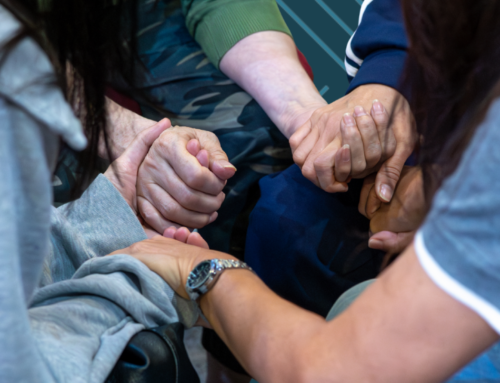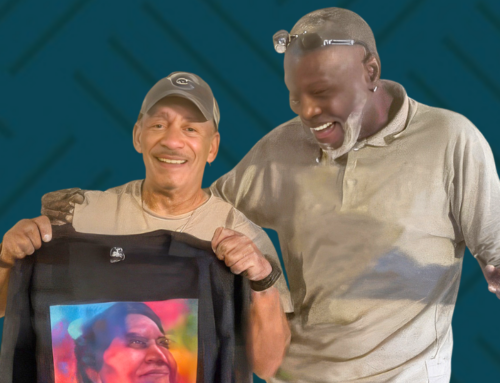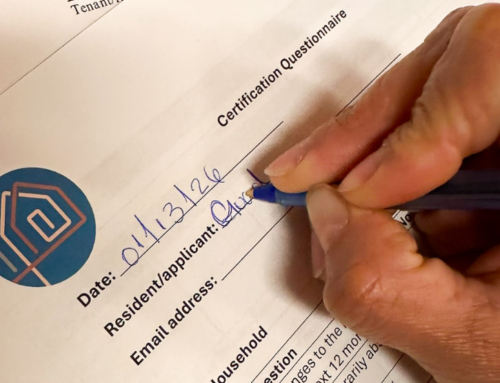Dear Friends,
We can never forget that homelessness is not simply “an issue” or a “social problem” or “statistics.” Each person experiencing homelessness, as author Donald Burnes reminds us, is “Someone’s Somebody”—a precious son, sibling, parent, neighbor, or friend. And let us never forget, each one is beloved of God.
Along with that essential focus, it’s also important to take a wide view of this challenge’s present scale and urgency—in considering how to respond. Here are just a few key realities*:
37.47
$37.47 per hour is the “Housing Wage” required to afford a two-bedroom unit in Colorado.
104
A minimum-wage worker needs to work 104 hours per week to afford a two-bedroom unit in Colorado.
1/3
One in three Denver households are cost-burdened (spending more than 30% on housing)
4/10
Forty percent of all lower-income renters spend more than 50% of their income on housing in Colorado.
1/5
Only one in five low-income people who qualify for housing vouchers actually get them, and more and more landlords refuse vouchers.
1/18
Only one in eighteen affordable housing proposals are awarded Low-Income Housing Tax Credits (LIHTC)—the primary financing instrument for construction projects like Clara Brown Commons—meaning most can never be built.
91
Between 2001-2022 Denver wages increased 67%, while rent increased 91%.
101,000
Colorado faces a shortfall of 101,000 homes and apartments; about half that need is in Denver.
???
There is no large-scale funding model for supportive services within affordable housing communities—meaning many residents are at risk of losing their place for an array of reasons, even when low rent is charged. (Joshua Station and Clara Brown Commons, for instance, rely primarily upon donations for the support-enriched environment we provide our residents.)
We can only ask, in the face of such numbers, “What is mine to do?”
Our friend Dr. Donald Burnes, professor at Denver University, shared a helpful and hopeful list of ten suggestions with our staff:
1. Talk about the issue and challenge stereotypes. Help change public opinion by talking to your friends and neighbors. Don’t be afraid to make your friends and family aware of their own stereotypes. Let them know the experience of homelessness looks different for everyone. It doesn’t only affect the man holding the sign on the street corner; homelessness affects mothers and children, veterans with PTSD, youth, individuals with mental health conditions, and many others.
2. Pay attention. Know what’s going on in your neighborhood and city. Stay abreast of local developments around this issue.
3. Use people-first language. Saying “people experiencing homelessness” instead of “homeless people” reminds us that homelessness is a condition, not a personal trait.
4. Get to know people experiencing homelessness. Their stories are important and transformative. You will learn so much from them.
5. Engage your congregations/organizations. Hold adult education sessions about homelessness; host and mentor a family experiencing homelessness; provide space for the creation of a Tiny Home Village, a Safe Outdoor Space, a Micro Community, or a Safe Parking lot; provide space for overnight shelter and care.
6. Address your elected officials. Call, send an email, or write a letter asking them to increase resources for addressing homelessness.
7. Reach out to your local public officials. Ask them to eliminate the enforcement of local ordinances that criminalize homelessness and to support efforts to develop safe, secure, dignified, and self-governed alternative places for people to sleep.
8. Volunteer. There are a lot of volunteer opportunities.
9. Join a Group. There are committees, groups, and organizations that are fighting to eliminate homelessness. Get to know them. Join them.
10. Provide financial support. Donate to organizations addressing homelessness.
Remember: We can ensure that homelessness is a short-term, one-time only, and rare occurrence for anyone. Be part of the solution; the choice is yours!
“Ten Ways to Address Homelessness.” Donald Burnes, Burnes Institute on Poverty Research, Colorado Center on law and Policy. October 2023.
*Statistics sources: National Low Income Housing Coalition; When We Walk By by Kevin Adler and Donald Burnes; Robin Kniech, Bell Policy Center Fellow.







